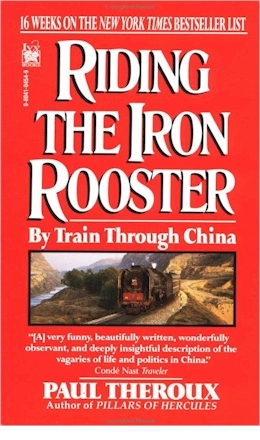There is no escaping this: Blogging my thoughts on Pacquaio. This is in reaction to watching current news on TV that is composed almost entirely of Pacquaio (i.e. people’s reactions to his recent fight and win against Mexican boxer Margharito, people’s clamor for his fight with Mayweather—which a lot of people, including Justin Bieber, consider to be the next “EPIC BATTLE”, Pacquiao’s costly pasalubong to his kids—well, not that he’s complaining). Despite my non-violent self, the one closely related to Dr. Jekyll (which has its ironies), who would not want to enjoy a bloodsport, I am somehow glad Pacquaio won. I was grinning when he punched combinations into Margharito. Could it be Filipino pride? Is Filipino pride related to the German schadenfreude? Those are among the several questions I would like myself to examine and finally find answers that are hopefully satisfactory and would put myself to sleep.
The other questions are: What is Filipino pride? When does it happen? Why does it happen?
And ultimately: Should I be proud of Pacquiao?
(Anyway, pardon all the side comments.)
To be continued. Watch out. This could be epic. (As thinking aloud is.)
Monday, November 15, 2010
English Lessons
Theroux’s book is becoming very interesting. But it is talking about China in the 1980s, a few years shy from the Cultural Revolution. I’m planning to email my Chinese friend, Cher Hu, to ask her if some things in the book still hold true today. Cher lives in southern China. I met her last year (?) at the museum when she took a tour with other Chinese social work volunteers.
While crossing the Yangtze (or Chang Jiang as the Chinese calls it) aboard the Shanghai Express, Theroux remembers what the Chinese say about the difference in temperaments between northerners and the southerners. The northern Chinese are “imperious, quarrelsome, rather aloof, political, proud noodle-eaters” while the southern Chinese are “talkative, friendly, complacent, dark, sloppy, commercial-minded and materialistic rice-eaters”. While it is the Chinese’ observations of their own, I wonder what they would think if they read it in a book. I wonder what Cher would think of this observation of the southern Chinese. She is the only southern Chinese I have met and talked with, and what I observed was she was very inquisitive and very interested about Philippine culture especially about Islam in Mindanao. I would not say she was “talkative” but she was “communicative”, although in the dictionary, one defines the other. But for me “talkative” holds a derogatory meaning. To be called talkative, is like being called for punishment for talking too much. In elementary, I was always listed in the class “Most Talkative” students, which an assigned class officer wrote on the blackboard for everyone to see, including the teacher who gives the punishment. The punishments varied from the least painful—a minus grade point—to the physically painful and publicly humiliating—sitting on the air for a time in front of one’s chair, while the rest of the class looked on in silence. “Communicative” is a much better word to describe someone who responds well by talking. Cher definitely communicated well on our meetings. I think this is because she spoke English well and therefore was not shy to communicate her ideas.
Speaking of speaking English, there’s a place Theroux visited in Shanghai which I want to know still exists. It is the “English Corner” in the People’s Park (in Peking, an English Corner existed in Beihei Park—that too, I would also like to know if it still exists). During Theroux’s visit, the English Corner was “half an acre of Chinese gabbing in English under the trees”. It was started by a few old men who learned English in missionary schools before the Revolution. Every Sunday, they congregated in one corner of the park to talk among themselves in English to keep their English-speaking skills sharp. Then young Chinese park visitors caught wind of this odd park section. A lot of them wanted to learn to speak English too! So they asked the old men to teach them English. “What began as a casual one-hour interval in 1979 had become by 1986 a full-day Sunday institution.” Regulars came to practice their English with their friends or with strangers, especially foreigners like Theroux who drop by, curious of what the corner is.
Theroux observed that the Chinese can be ritualistic in this way. But this ritual was also practical for the Chinese youth. They took informal English lessons in the English Corner because it helped them gain an upper-hand in the new Chinese economy where new businesses found English speakers a plus. But he finds a more daunting conclusion. He met some Chinese youth who, upon learning English, have assigned themselves English names. He concluded that this could be “a way of distancing themselves from a culture that until recently had been intensely chauvinistic.” It also poked the Cultural Revolution in the eye when the Chinese youth called themselves by their English names while wearing “a funny hat and sunglasses.”
I’ve met other Asian youths (Chinese and South Koreans) here in Davao who have English names. For South Koreans who come to the Philippines in droves to learn English, having an English name is a must. I am not sure of their reasons. For me, it makes it easier to remember them. They may not have the same reasons as the Chinese and the Chinese youth of today who have English names may not have the same reasons as the Chinese youth of the 1980s for having English names. But could the cultural impact have similarities? I have an English name. Do I feel myself apart from my culture because of my English name? What is Philippine culture nowadays anyway? What I know is dominant of Philippine culture today is that it is highly Westernized that even when I go to the mountains and meet tribes people, they introduce themselves with their English names.
While crossing the Yangtze (or Chang Jiang as the Chinese calls it) aboard the Shanghai Express, Theroux remembers what the Chinese say about the difference in temperaments between northerners and the southerners. The northern Chinese are “imperious, quarrelsome, rather aloof, political, proud noodle-eaters” while the southern Chinese are “talkative, friendly, complacent, dark, sloppy, commercial-minded and materialistic rice-eaters”. While it is the Chinese’ observations of their own, I wonder what they would think if they read it in a book. I wonder what Cher would think of this observation of the southern Chinese. She is the only southern Chinese I have met and talked with, and what I observed was she was very inquisitive and very interested about Philippine culture especially about Islam in Mindanao. I would not say she was “talkative” but she was “communicative”, although in the dictionary, one defines the other. But for me “talkative” holds a derogatory meaning. To be called talkative, is like being called for punishment for talking too much. In elementary, I was always listed in the class “Most Talkative” students, which an assigned class officer wrote on the blackboard for everyone to see, including the teacher who gives the punishment. The punishments varied from the least painful—a minus grade point—to the physically painful and publicly humiliating—sitting on the air for a time in front of one’s chair, while the rest of the class looked on in silence. “Communicative” is a much better word to describe someone who responds well by talking. Cher definitely communicated well on our meetings. I think this is because she spoke English well and therefore was not shy to communicate her ideas.
Speaking of speaking English, there’s a place Theroux visited in Shanghai which I want to know still exists. It is the “English Corner” in the People’s Park (in Peking, an English Corner existed in Beihei Park—that too, I would also like to know if it still exists). During Theroux’s visit, the English Corner was “half an acre of Chinese gabbing in English under the trees”. It was started by a few old men who learned English in missionary schools before the Revolution. Every Sunday, they congregated in one corner of the park to talk among themselves in English to keep their English-speaking skills sharp. Then young Chinese park visitors caught wind of this odd park section. A lot of them wanted to learn to speak English too! So they asked the old men to teach them English. “What began as a casual one-hour interval in 1979 had become by 1986 a full-day Sunday institution.” Regulars came to practice their English with their friends or with strangers, especially foreigners like Theroux who drop by, curious of what the corner is.
Theroux observed that the Chinese can be ritualistic in this way. But this ritual was also practical for the Chinese youth. They took informal English lessons in the English Corner because it helped them gain an upper-hand in the new Chinese economy where new businesses found English speakers a plus. But he finds a more daunting conclusion. He met some Chinese youth who, upon learning English, have assigned themselves English names. He concluded that this could be “a way of distancing themselves from a culture that until recently had been intensely chauvinistic.” It also poked the Cultural Revolution in the eye when the Chinese youth called themselves by their English names while wearing “a funny hat and sunglasses.”
I’ve met other Asian youths (Chinese and South Koreans) here in Davao who have English names. For South Koreans who come to the Philippines in droves to learn English, having an English name is a must. I am not sure of their reasons. For me, it makes it easier to remember them. They may not have the same reasons as the Chinese and the Chinese youth of today who have English names may not have the same reasons as the Chinese youth of the 1980s for having English names. But could the cultural impact have similarities? I have an English name. Do I feel myself apart from my culture because of my English name? What is Philippine culture nowadays anyway? What I know is dominant of Philippine culture today is that it is highly Westernized that even when I go to the mountains and meet tribes people, they introduce themselves with their English names.
Labels:
book,
China,
culture,
English language,
English names,
travel
Very Punny
I learned a new word in Paul Theroux’s book. It’s “priapic” which means resembling a phallus. He used it to describe Hsi-Men, the Chinese Casanova in the pornographic and restricted book “Jin Ping Mei”, which he read while riding the Shanghai Express. Theroux describes the book as a raunchy 2,000-page novel that tries resolving itself as a morality tale. When I read the passage of its end, which Theroux quoted in his book, I was reminded of the film “In the Realm of the Senses.” Both male protagonists in the book and the film screwed themselves to death and the female protagonists were depicted as insatiable sex fiends who cause the male protagonists' fall from passion.
But I think what’s more ridiculous is Hsi-Men’s name. It sounds the same way as “semen”. The author must not have intended the pun. But I, as a reader (and someone whose imagination got ludicrously fired up) could not help but notice the pun. In fact, there is not just the pun in Hsi-Men’s name. It did not take me a second to realize that if one divides the word “semen” by its syllables, one comes up with “se” (sē) and “men” (mən) which I interpret as “sea men” (sailors—a lot of testosterone there) and “a sea that reproduces men” (provided it merges with a sea of eggs). Now, I “see men”.
Labels:
book,
China,
English language,
English vocabulary,
film,
pornography,
sex
Subscribe to:
Posts (Atom)

